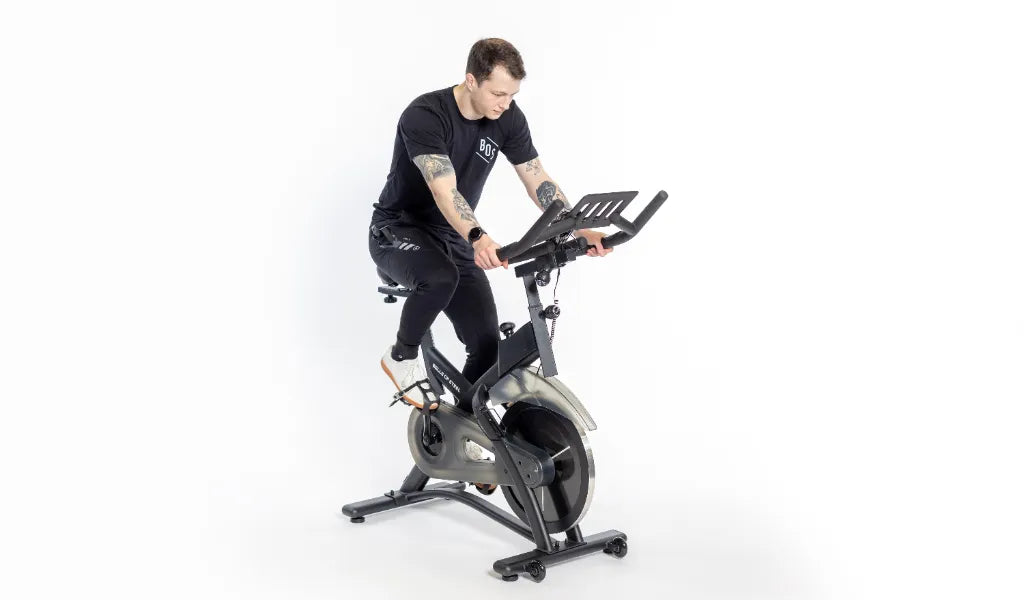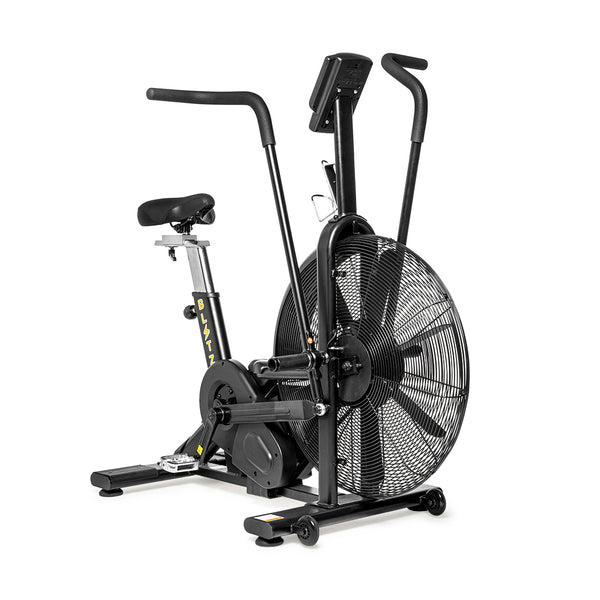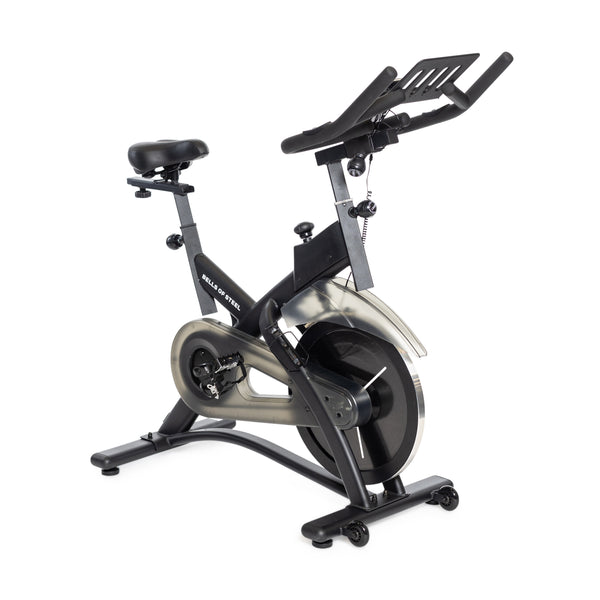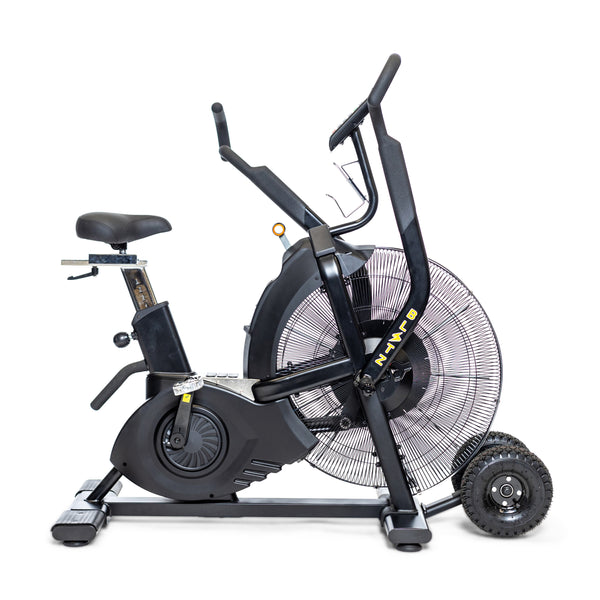Whether you’re new to the exercise bike world or a seasoned spinner, knowing how to use an exercise bike properly can make your workouts more effective and enjoyable.
Let’s explore how to use an exercise bike and get the most out of your ride.
Adjusting Your Seat
First things first – you’ve got to set up your seat height. You don't want to feel like a circus performer on a unicycle.
Height
When standing next to your bike, the seat should be level with your hip bone. Hop on and pedal backward. Your leg should be almost straight at the bottom of the pedal stroke.
If it’s too bent or you’re stretching like a yoga master, adjust the seat up or down.
Forward/Backward Position
Sit on the bike and ensure your knee is directly over the pedal when it’s in the three o'clock position.
Move the seat forward or backward if your knee is ahead or behind. This ensures you’re not overworking your knees—and trust me, your knees will thank you.
Handlebars
Next up, handlebar height & distance from you.
Height
This isn’t just about comfort; it’s about avoiding back pain too. Start by setting the handlebars level with the seat or slightly higher.
Forward/Backward Position
When sitting comfortably, your elbows should slightly bend, and you shouldn’t feel overreaching or too cramped. Adjust as needed. The handlebars are not a jungle gym—no swinging or hanging allowed!
Metrics Explained
Now, let’s discuss those fancy metrics on your bike’s console. Here are the basics:
- RPM (Revolutions Per Minute): This tells you how fast you’re pedaling. Aim for a steady 60-90 RPM during your conditioning workout.
- Resistance Level: Think of this as your hill simulator. The higher the resistance, the tougher the climb. Start low and gradually increase as you build strength.
- Heart Rate: Many bikes have heart rate sensors. Aim to keep your heart rate between 50-85% of your maximum heart rate. A good rule of thumb is 220 minus your age to find your max heart rate.
- Calories Burned: Take this with a grain of salt. It’s an estimate, not an exact science.
Keep an eye on these metrics to ensure you’re not just spinning your wheels!
Basic Maintenance
Just like your car needs a little TLC, so does your exercise bike. Here’s a quick rundown of basic maintenance:
- Tools You’ll Need: Allen wrench set, screwdriver, and a clean cloth.
-
Frequency: Once a month, give your bike a good check-up.
- Tighten Bolts and Screws: Give everything a once-over with your trusty tools to ensure nothing’s loose. A wobbly bike is a no-go.
- Clean and Lubricate: Wipe down the bike to remove sweat and dust. Lubricate the chain or flywheel if necessary.
- Check the Pedals and Straps: Ensure they’re secure and not worn out. Replace if needed – you don’t want a foot flying off mid-ride.
Final Thoughts
There you have it—a comprehensive guide to using an exercise bike like a pro. Remember, comfort, proper setup, and maintenance are the keys to a great workout.
Now hop on that bike and pedal your way to fitness glory. And hey, if you break a sweat, you’re doing it right!



